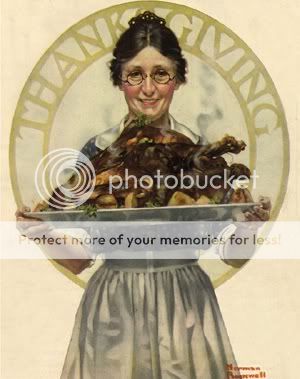While most of the world now celebrates New Year's Day on January 1st, it was not always that way. If you had lived in Mesopotamia and Babylon 4,000 years ago (c. 2000 B.C.), you probably would have celebrated the New Year in mid-March, at the time of the Vernal (Spring) Equinox. If, however, you were an Egyptian, your new year began with the Autumnal Equinox and the flooding of the Nile. If you were Greek, the Winter Solstice began your New Year celebrations. All these seasons reflected a time of renewal, re-birth and regeneration. However, it was secular, civic and religious influences that eventually changed most "new year" celebrations to January 1st.
Measuring time was, historically, determined by the easily observed cycles of the sun (solar), the moon (lunar) and of the regular occurrences of seasonal events that influenced agriculture. However, since solar, lunar and seasonal events were not consistent, formulating a reliable calendar evolved over eons.
The earliest known Roman calendar designated March as the beginning of the New Year, on the Vernal Equinox - the beginning of spring and a time when warring could begin, again. Depending upon whether one focuses on Mars or Martius as the derivation of that month's name, either interpretation is acceptable, as the return of spring begins a new crop season; and, with the winter ending, the weather was favorable for moving troops. Their calendar had ten named months, reflected in the historic, numerical names of six of the months. The origin of the names of the months were:
- March - Mars, Roman god of war; or, Martius - Roman god of fertility and vegetation
- April - perhaps derived from aperire - Latin from open; or, from Aphrodite, goddess of love and beauty
- May - Maia, Roman goddess of spring
- June - Juno, principle Roman goddess of marriage and the well-being of women
- July - originally Quintilis, Latin for 5th month, renamed for Julius Caesar in 44 B.C.
- August - originally, Sextilis, Latin for 6th month, renamed for Augustus Caesar in 8 B.C.
- September - septem, Latin for 7
- October - octo, Latin for 8
- November - novem, Latin for 9
- December - decem, Latin for 10
Before 700 B.C. the calendar year began with the month of March, until the second king of Rome, Numa Pontilius, added the month of January and February. The month of January was named to honor Janus, a Roman god with two faces - one looking back and the other looking forward, signifying the old and the new.
February is derived from Februa, the Roman festival of purification.
In 46 B.C.E. the Roman emperor Julius Caesar first established January 1 as New Year’s day. In later years, Roman pagans observed the New Year by engaging in drunken orgies—a ritual they believed constituted a personal re-enacting of the chaotic world that existed before the cosmos was ordered by the gods.
As Christianity spread, pagan holidays were either incorporated into the Christian calendar or abandoned altogether. By the early medieval period most of Christian Europe regarded Annunciation Day (March 25) as the beginning of the year. According to Catholic tradition, Annunciation Day commemorates the angel Gabriel’s announcement to Mary that she would be impregnated by G-d and conceive a son to be called Jesus.
After William the Conqueror (AKA “William the Bastard” and “William of Normandy”) became King of England on December 25, 1066, he decreed that the English return to the date established by the Roman pagans, January 1. This move ensured that the commemoration of Jesus’ birthday (December 25) would align with William’s coronation, and the commemoration of Jesus’ circumcision (January 1) would start the New Year - thus rooting the English and Christian calendars and his own Coronation. William’s innovation was eventually rejected, and England rejoined the rest of the Christian world and returned to celebrating New Years Day on March 25.
About five hundred years later, in 1582, Pope Gregory XIII (AKA “Ugo Boncompagni”, 1502-1585) abandoned the traditional Julian calendar. By the Julian reckoning, the solar year comprised 365.25 days, and the intercalation of a “leap day” every four years was intended to maintain correspondence between the calendar and the seasons. Really, however there was a slight inaccuracy in the Julian measurement (the solar year is actually 365 days, 5 hours, 48 minutes and 46 seconds = 365.2422 days). This slight inaccuracy caused the Julian calendar to slip behind the seasons about one day per century. Although this regression had amounted to 14 days by Pope Gregory’s time, he based his reform on restoration of the vernal equinox, then falling on March 11, to the date had 1,257 years earlier when Council of Nicaea was convened (March 21, 325 C.E.). Pope Gregory made the correction by advancing the calendar 10 days. The change was made the day after October 4, 1582, and that following day was established as October 15, 1582. The Gregorian calendar differs from the Julian in three ways: (1) No century year is a leap year unless it is exactly divisible by 400 (e.g., 1600, 2000, etc.); (2) Years divisible by 4000 are common (not leap) years; and (3) once again the New Year would begin with the date set by the early pagans, the first day of the month of Janus - January 1.
Throughout the medieval and post-medieval periods, the Church remained opposed to celebrating New Years at January 1 - supposedly the day on which Jesus’ circumcision. So, the January 1 has been celebrated as a holiday by Western nations for only about the past 400 years.
Sources and Additional Information:





























